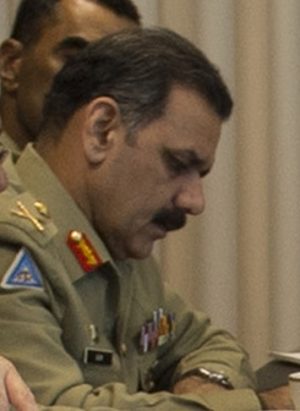Pakistani Prime Minister Imran Khan has appointed a former head of the military’s information wing, the Inter-Services Public Relations (ISPR), as his special assistant on media and broadcasting. Lt. Gen. (retired) Asim Saleem Bajwa is a prominent figure in the Pakistani military. His appointment as Khan’s special assistant on media is unprecedented and is going to benefit the current government greatly. However, the appointment also points toward the increasing need to bring in professionals to run the government’s key ministries and strategic portfolios.
In Pakistan, Bajwa is credited with reforming and revitalizing the Pakistani military’s media policy and revamping the ISPR into an institution equipped to counter all sorts of information war challenges. Bajwa, the first three-star general to lead the military’s media wing, introduced the use of social media platforms such as Twitter to project his institution’s role domestically and internationally. Bajwa has also served as the head of Southern Command, a corps of the Pakistan Army currently responsible for the security of the country’s restive Balochistan province. More importantly, currently, he also serves as the chairman of the China-Pakistan Economic Corridor Authority (CPECA), a body working to ensure the timely completion of the China-sponsored infrastructure projects in Pakistan.
It’s expected that with the appointment of Bajwa as a focal person on communication, the government’s information management crisis during the COVID-19 will end. Since the onset, Khan’s government has not been able to manage its information game effectively. Arguably, a poor communication policy was broadcast by politicians with profound partisan links and has caused serious trouble for the current regime. For the past 18 months, Khan’s team leading the information ministry and projecting the government’s work has found itself needlessly targeting either media houses or opposition political parties. “Gen. Bajwa will bring the strategic media and communications outlook that he pioneered as the DG [director general] ISPR. The government has lacked this strategic view to its peril,” writes Fahd Hussain, who serves as an editor with Dawn.
It’s also plausible that Khan is merely yielding to the security establishment’s requests and the appointment of Bajwa is another step in that direction. Undoubtedly, one of the key reasons that Khan has survived so far is due to his ability to avoid severing relations with the national security establishment. It reflects smart politics on the part of a prime minister who leads a very weak government and remains dependent on the support of the national security establishment to even manage his government’s day-to-day affairs.
To a great extent, the COVID-19 crisis has made it clearer that Khan is willing to give space to the national security establishment on matters of governance if he senses incompetence or a lack of capacity within Pakistan’s civilian ranks. While one can discuss the merits of such a decision in the constitutional realm, it’s laudable that Khan is willing to cross over to the other side and ask for help. By doing so he is not only making the process of fighting the COVID-19 more organized, but also wants to share space with an institution that can provide professional support and share responsibility.
In any case, the appointment of Bajwa is a good sign for a portfolio that has long remained ignored. Bajwa should be expected to bring major reforms to the Information Ministry. His track record with the ISPR shows that he is going to reach out to all relevant stakeholders to create a better understanding between the government and publication houses.
It’s important to note here that Bajwa enjoys good relations with opposition parties, journalists, and media organizations alike. His calculated and clear language, which he is expected to bring to the press briefings concerning the government’s response to COVID-19, will generate much-needed clarity on an issue of strategic significance. It’s also expected that the ongoing blame game between the federal government and several other provincial stakeholders will either come to an end or be greatly reduced. Additionally, his appointment means that there will hardly be any occasion when the ISPR will have to clarify the government’s policy on the COVID-19 crisis, a trend that has continued for more than a month now.

































